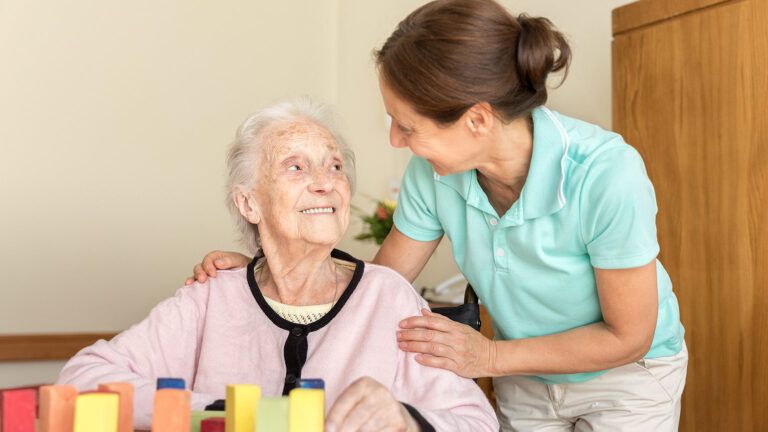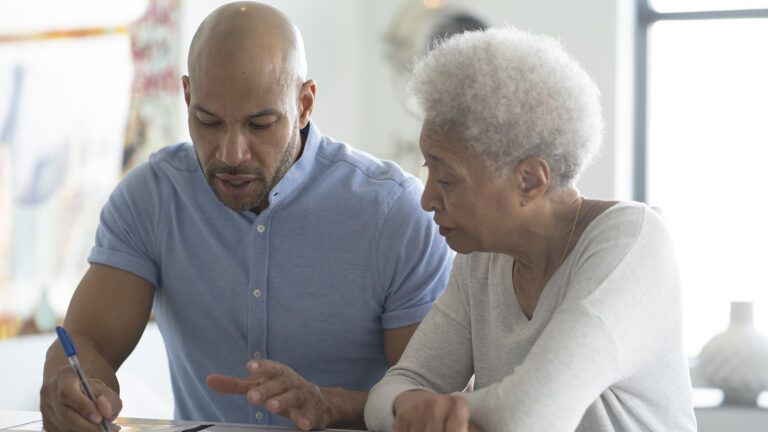Nicholas Fenell is the Adult Day Program Activities Assistant and PRN Intern at Benjamin Rose Institute on Aging
Give yourself a much-deserved pat on the back. You are a caregiver to a loved one with dementia, and thanks are in order. The love and care you provide are of immeasurable value. You confront and overcome challenges on a daily basis. In addition to thanks, you deserve encouragement to continue on your journey. You also deserve and need a break. Although you may resist carving out time for yourself, practicing self-care on a regular basis matters greatly to your overall well-being, and helps you to be a better caregiver.
In an effort to point the way, industry professionals from organizations like Bella Care Hospice and Summa Health System have offered self-care suggestions at caregiving symposia and conferences such as The Person Comes First: A Dementia and Caregiving Symposium and Benjamin Rose Institute on Aging’s Annual Caregiving Conference. Some of these ideas may appeal to you or inspire you to find individualized ways to take care of yourself, as well as your loved one.
First, it helps to recognize all you do as a caregiver for someone living with dementia or Alzheimer’s disease. Each situation is unique, but the caregiving process can easily seem like a 24/7, full-time job. You may bathe your loved one, help him or her with toileting, assist with eating, monitor diet and keep track of and dispense various medications. You may be the one to handle accessibility concerns and many activities of daily living (ADLs). While performing all these duties, you may feel alone and that you have little or no support. But know that you are not alone, regardless of your circumstances. Many resources are available to give you support.
Once you find ways to share your responsibilities, you can create an opening for self-care, which means giving attention to your own wellness needs. This, in turn, fosters an environment of care and positivity for everyone around you. When did you last take part in an activity that was just for you? What sort of activities would bolster feelings of joy and hope in your life? If you need a little help coming up with answers, you may want to consider the following ideas recommended by dementia advocate and public speaker the Very Reverend Tracey Lind. Keep in mind that these are only suggestions. You can tailor your own self-care strategy to meet your particular interests and favorite pastimes. But any of these activities may serve as a start:
· Catch a film
· Set aside a spa or salon day
· Have lunch with a person in your life you care about
· Devote an hour every day to a book you have been trying to get to
· Give yourself a dedicated time to listen to music you love
· Explore arts and crafts, like scrapbooking
It may be the case that including your loved one in one or more of these activities would add to your joy. If so, by all means, participate together, as long as he or she also has fun with the activity, and can take part in it safely. Don’t forget, though, that self-care is supposed to provide you respite. If involving your loved one in your self-care routine could lead to stress, don’t feel that you have to do so. When it comes down to it, you are the authority on your needs and limitations and have the best sense for what would grant you the restful results you crave and require.
Take comfort in knowing that you are not alone on your journey. The Alzheimer’s Association provides a breadth of information on their website, ranging from care resources to a directory of support groups near you. Alzheimers.net also offers helpful information on finding emotional support groups for caregivers supporting loved ones with Alzheimer’s disease or other types of dementia. Benjamin Rose Institute on Aging, a renowned research authority on aging across the nation, offers email and telephone support through their BRI Care Consultation™ care-coaching program, and respite services through their Adult Day Program (ADP) located in Cleveland, Ohio. Similar day programs may exist in your area to provide you a break when you need it. Your hard work does not go unnoticed, nor does taking assistance from others detract from the diligent care you provide your loved one.
So accept a big debt of gratitude here for everything you do as a caregiver for a loved one with dementia or Alzheimer’s disease. Be encouraged to go on providing your invaluable love and support. Acknowledge all that you do, and in doing so, be sure to make time for yourself!





